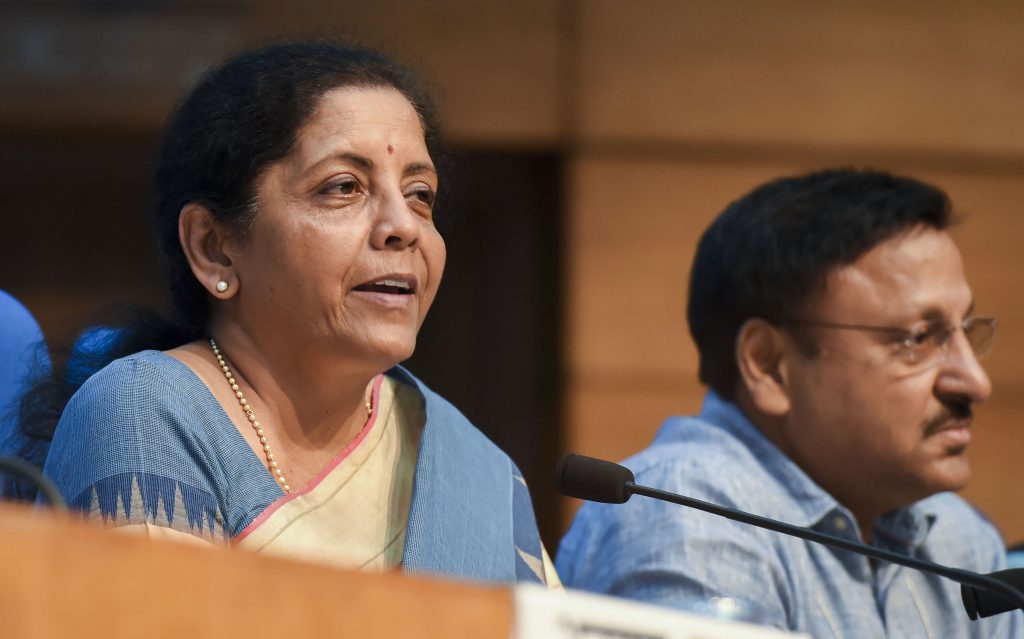New Delhi: Finance Minister Nirmala Sitharaman announced Friday the upfront capital infusion of Rs 70,000 crore into public sector banks, a move aimed at boosting lending and improving liquidity situation.
The move is expected to generate an additional lending and liquidity in the financial system to the tune of rupees five lakh crore, Nirmala Sitharaman said at a press conference here. The Finance Minister further said that banks have decided to pass on RBI rate cut benefits to borrowers through MCLR reduction.
Nirmala Sitharaman also said that banks will launch repo rate and external benchmark-linked loan products that will lead to reduced easy monthly installments for housing, vehicle and other retail loans. “Working capital loans for the industry will also become cheaper,” the minister said.
Nirmala Sitharaman also announced a slew of measures to ensure that loans for home, vehicles and consumption goods become cheaper and widely available through banking and non-banking finance companies.
The minister also announced additional liquidity support of Rs 20,000 crore to housing finance companies (HFCs) by the National Housing Bank (NHB), thereby increasing the total support to Rs 30,000 crore.
The government also announced partial credit scheme for purchase of pooled assets of non-banking finance companies and HFCs up to rupees one lakh crore to be monitored at highest level in each bank. Prepayment notices issued to NBFCs will be monitored by banks.
In a bid to address slowdown in the auto sector, the government came up with new measures including lifting ban on purchase of vehicles by government departments, and allowing additional 15 per cent depreciation on vehicles acquired from now till March 2020.
Also, BS-IV vehicles purchased up to March 2020 will remain operational for the entire period of registration, Sitharaman told the media.
The Centre will lift the ban on purchase of new vehicles for replacing all old vehicles by government departments, and consider various measures including scrappage policy to boost demand, she said. Besides, both electric vehicles (EVs) and Internal Combustion Vehicles (ICV) will continue to be registered.
The minister said the government’s focus will be on setting up of infrastructure for development of ancillaries/components, including batteries for exports.
The government will also allow an additional 15 per cent depreciation, taking it to 30 per cent, on all vehicles acquired from now till March 2020. “The revision of one-time registration fees has been deferred till June 2020,” Sitharaman informed.
PTI
